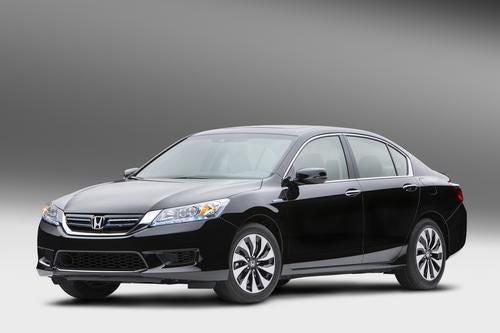Toyota Preps for Launch of Hydrogen-Powered Sedan
December 4, 2014

Toyota Motor Corp. will take another small step on the long road to fuel cell viability next year, rolling out a hydrogen-powered production sedan called the Mirai.
The $57,000 four-door, mid-size sedan will refuel in five minutes, travel 300 miles on a full tank, and accelerate from 0-60 mph in 9.0 seconds. Toyota says it will reach showrooms at the end of 2015. "This is a long-term play for Toyota," Cosmin Laslau, research analyst for Lux Research Inc. told Design News. "They're not expecting it to be an overnight sales success, but eventually the cost will come down, the technology will improve, and the popularity will climb."
In a glitzy press event at the recent Los Angeles Auto Show, Toyota CEO Akio Toyoda called the rollout "a turning point in automotive history." Toyota executives described millions of miles of testing on tracks and public roads, including hot weather testing in Death Valley, cold testing in Yellowknife, Canada, and safety testing at the company's Higashifuji Safety Center. They said the new vehicle will offer a high level of collision safety for both the fuel cell stacks and the high-pressure hydrogen tanks.
Click on the Mirai below for an up-close look at Toyota's hydrogen-powered sedan.

The Mirai will feature a fuel stack that fits under the driver and passenger seats. It will also offer an optional power take-off device that enables the vehicle to serve as a mobile generator during emergencies. Toyota said the car is "capable of powering home essentials in an average house for up to a week in an emergency."
An AC synchronous motor will offer 153 HP and 247 lb-ft of peak torque. Normal operating pressure for the hydrogen fuel will be about 10,000 psi. Plans are for Toyota to build 700 of the vehicles in 2015 and ramp up annual production into the tens of thousands by 2020.
Toyota's announcement comes on the heels of a similar rollout by Hyundai earlier this year. In June, Hyundai introduced the Tucson Fuel Cell CUV, saying it plans to build and lease approximately 1,000 of them by the end of 2015. Honda has also released plans for a hydrogen-powered car, although it now appears the vehicle won't hit the streets until after 2015.
Industry analysts told Design News that the Toyota announcement was an important one for the auto industry, but added that sales of hydrogen-powered vehicles will continue to be small for years, largely because of lack of infrastructure. Currently there are believed to be only about 15 public hydrogen refueling stations in the US.
"Getting the fuel is a challenge," noted Thilo Koslowski, vice president and Distinguished Automotive Analyst for Gartner Inc. "It's not as readily available as electrons at this point."
Analysts added that fuel cell vehicles are also a generation or more behind battery-electric cars in terms of production maturity. "Manufacturers of battery-electric cars have a lot of mass production experience behind them," Laslau told us. "They've deployed cars and learned hard lessons in terms of battery durability and infrastructure."
Still, experts contend that hydrogen-powered vehicles may have a distinct niche in the long run. Fuel cells, they say, already offer longer driving ranges and faster refueling times than BEVs. "The benefit of hydrogen is that it doesn't require a fundamental change from the consumer adopter point of view," Koslowski told us. "There's less of a burden in terms consumer accceptance, as long as the infrastructure problem gets solved."
Still, sales numbers are expected to be small in the coming decade. Lux projects global sales of 20,000 fuel cell vehicles per year by 2020 and 60,000 per year in 2025. Those numbers are miniscule compared to total worldwide sales, which are expected to be over 100 million vehicles a year by that time.
"Toyota is looking to the future -- 2030 or 2040 or even farther out than that," Laslau said. "This is a long-term bet."
Related posts:
About the Author(s)
You May Also Like



